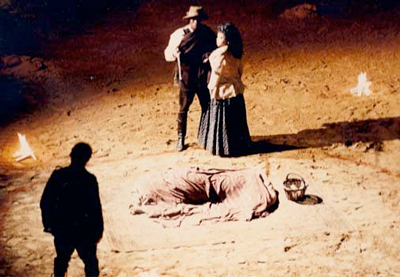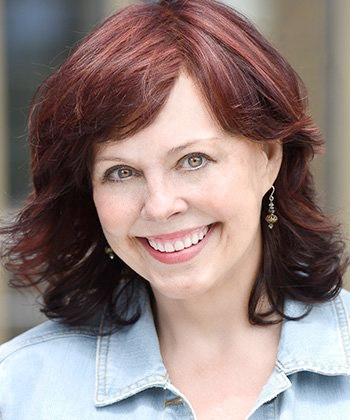by Daniel Hathaway

The most radical version of the work, Peter Brook’s La Tragédie de Carmen, which premiered at the Vivian Beaumont Theater in New York in 1981, reduces Bizet’s four acts lasting about 2-½ hours to one act lasting 85 minutes. Brook also stripped out the chorus, reduced the orchestra to 14 players, and cut many of the original elements from the score.
BW Opera Theater will present Brook’s The Tragedy of Carmen in the Robert Allman Theater on BW’s Berea campus from February 25 to 28, with evening performances running from Thursday through Sunday at 7:30 pm, and matinees on Saturday and Sunday at 2:00 pm. The production will be directed by Victoria Bussert, BW’s director of musical theater. We reached her by phone to get her take on the Peter Brooks version of the show.
“I wouldn’t call it a condensing of Carmen. I’d call it a re-imagining,” she said. “I was fortunate enough that when I was a teenager, my mother took me to see this version at Lincoln Center when Peter Brook brought it over to New York. I can describe in detail very specific moments of that experience that impacted me as a director for the rest of my life. I don’t think I ever took a breath during that production. I just found it extraordinary.”
Beyond Carmen, Bussert has been impressed by Peter Brook’s approach to theater in general. “He is definitely one of my idols. I’m one of those crazy people who sat through all nine hours of his Mahabharata [his 1985 staging of the Indian epic poem] twice in New York. His focus, dedication, and passion for bringing very raw, very true, and yet very theatrical pieces to life are very inspiring to me.
“The Tragedy of Carmen was the first time his theater company in Paris had worked with opera singers. There’s a wonderful video showing different exercises they did in the rehearsal process. I have always loved the times I have directed opera, because I find that singers embrace being treated as actors. Extraordinary things happen vocally because their focus has shifted.”

Bussert is also drawing on some of the elements of the Lincoln Center production she remembers so well as a teenager. “We’re staging it in three-quarter round in our black box theater — the New York show was completely in the round. That’s a new situation for many of our singers, because normally you have the orchestra in the pit and you’re working with a proscenium stage. Our orchestra is above and behind the stage. And we’ve trucked in I don’t know how many tons of sand to create a sand floor. We’ll only be able to seat a maximum of 200 for each performance, and the singers won’t be miked.”
Has Victoria Bussert felt the need to warn audiences about how different this Carmen will be from what they may be used to? “I don’t think audiences will be disappointed,” she said. “Brook created his own theater piece and this is a whole different way of entering this story. At the end, we certainly go to the bull ring and we have Escamillo’s tragedy, but Brook has added a non-sung ending over Bizet’s music.”
Bussert is also confident that her young singer-actors will be completely up to their tasks. “I’ve been incredibly impressed by both the musical and acting values of these casts. A lot of people might say, ‘How can you have undergraduates sing this?’ I would say, ‘Come hear them.’ Maria Callas was certainly singing grand opera at the age of 19 — not that one would want to recreate her own career trajectory. Last week at the end of the flower aria, Octavio Más-Arocas, our conductor, said, ‘I have chills!’”
Published on ClevelandClassical.com February 23, 2016.
Click here for a printable copy of this article


